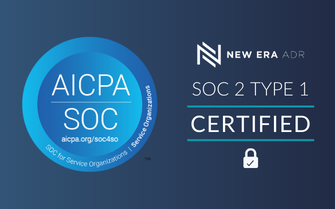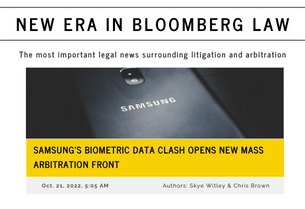
In a recent exchange on twitter, a woman asked users to share “something you normalized because your family did it and then realized it was not, in fact, normal or remotely common.” User @momofink responded “the villain in my bedtime stories was always the President of the Homeowner’s Association and I was soooo confused when no one else had heard of him.” A screenshot of the thread went viral as many found the villiainization of a neighbor highly relatable.
Ask any real estate agent, broker, homebuyer, landlord, builder, seller, renter, HOA member… and they will tell you real estate is emotional. Tensions run high in an industry with bidding wars, housing shortages, tenant disputes, and a wave of new needs thanks to WFH. Working from home has changed the real estate market in nearly ever way; from new boomtowns to ghostly financial districts, from downsizing office space to those who question if offices still need to exist.
Recent changes have caused rents to rise and home prices to skyrocket, short-term rentals have gained popularity for investors, and builders face unmeetable demand. All of this creates an environment ripe for disputes.
Despite how stressful they can be, real estate disputes typically involve relatively small sums of money. Most conflicts in real estate do not warrant a trial that would outspend any gain. Resolution is important, but so is time, money, and mental health. Feuding with your building’s property manager or HOA president indefinitely is no way to live either. Hiring lawyers and waiting for a court date will often drain any positive gain that may have come from litigation in court; unfortunately, the same can be said for litigation in most arbitration forums. Resolution at any cost is irrational, which is one of the reasons why New Era was created; we saw the need for something to address the enormous gap between settling and overspending.
Alternative dispute resolution done right can be a much faster, more efficient method of resolving disputes, and especially well-suited for most real estate disputes. To highlight the need for ADR and its benefits, let’s explore a few scenarios.
Buyer/Seller Disputes: According to the National Association of REALTORS®, more than 6.12 million homes were sold in 2021, the highest number since 2006. That is a staggering statistic; and one that illustrates the true magnitude of exposure for future disputes. Each transaction carries risk of conflict, ranging from failure to disclose defects to purchase agreement terms to representation issues. Some buyers choose to seek relief by terminating a contract or forfeiting earnest money, or maybe even forfeiting the value of the property. The average sale price of a U.S. home in 2021 was approximately $450,000. Using 10% earnest money as an example, a $45,000 loss would not be worth the expense of litigation. It’s still a significant loss for a homebuyer though. This is where ADR can help. If both sides have an opportunity to tell their story to an unbiased neutral party through a streamlined process, it is more likely that a quick, efficient resolution will be achieved. An outcome that makes more economic sense for everyone involved.
Developer Disputes: Building a property can be just as emotional as buying or selling. With more people, businesses, and regulations involved, the risk is also high. Architects, engineers, designers, general contractors, and sub-contractors all represent opportunities for conflict. For those who were preparing for a build just prior to 2020, the pandemic unleashed a flurry of complications. Lumber prices increased by 315%. Global supply chains were interrupted driving up the cost of steel, drywall, and paint. Labor shortages caused the bottom line to balloon and severely delayed timelines. Force majeure entered the Nation’s lexicon overnight and all parties involved learned that their contracts required their disputes be decided in courts that were closed, further complicating the path to resolution. Many found themselves in no-win situations; forced to choose between the high cost of litigation or the high cost of walking away. There is a third option, though. An alternative dispute resolution clause with the right ADR provider still means that the merits of the dispute will determine if the case is pursued. Addressing a conflict is now within the control of those affected and New Era’s platform is built to resolve disputes quickly, digitally, and cost effectively.
Landlord/Tenant Disputes: According to Ibis World the size of the U.S. apartment rental market was $169.5B in 2021, with commercial leasing of space accounting for an additional $172.1B. Neither of these statistics account for home rentals nor short-term/vacation rentals, dictating that the total addressable market for rentals in the United States almost certainly exceeds $500B. With this incredible volume comes daily disputes between landlords, tenants, and property managers. While there may be thousands of nuances that dictate fault and liability in these disputes, the vast majority will not involve damages that justify protracted litigation. If court is the contractually mandated venue for resolving disputes, it is almost certain that these disputes will not get resolved and that all the parties will lose as acrimony spreads. The introduction of a mediator or arbitrator, however, could resolve the majority of these disputes quickly and efficiently.
Agents and Gatekeeper Disputes: In many real estate transactions, commercial or residential, there may be a buyer/tenant agent, a seller/landlord agent and maybe even additional agents depending on the structure of the transaction. There may also be other stakeholders like a Homeowners Association that has the power to approve or deny certain requests. Agents are often caught in the middle of these types of conflicts. Agents also have commission to consider that fluctuate based on sale price. At times, the lines of which agents represent which parties can blur leading to disputes over the size and percentage of the commission and possibly even who is responsible for payment, or who is responsible for a deal that falls through. The cost-benefit analysis discussed previously, also applies here. In addition to the cost, agents will also want to consider urgency. Since many agents rely on commissions as their primary source of income, waiting a year or more for resolution factors in to the decision. Additionally, because agent communities can be small and close-knit from region to region, disputes can lead to bitterness and resentment that may adversely impact all the agents involved. Some brokerages try to mediate and resolve these disputes internally when the agents involved sit under the same managing broker umbrella, but those mediations can lead to concerns of bias (warranted or not). Alternative dispute resolution offers the advantage of a neutral third party and has the ability to bring closure to these disputes quickly and ideally also preserves valuable relationships that may otherwise be severed by traditional litigation.
While the real estate industry is massive, the majority of real estate transactions do not warrant six, seven, or even eight-figure legal fees or years of litigation. Alternative dispute resolution, and specifically those ADR providers with streamlined and efficient processes and virtual products, like New Era ADR, can be the hero of the story so everyone can live – wherever that may be – happily ever after. Contact us today to learn more.




